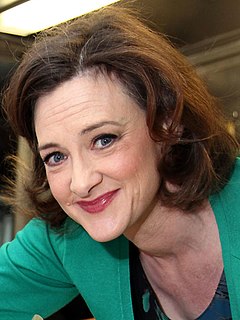A Quote by William Graham Sumner
It used to be believed that the parent had unlimited claims on the child and rights over him. In a truer view of the matter, we are coming to see that the rights are on the side of the child and the duties on the side of the parent.
Related Quotes
A conscious parent is not one who seeks to fix her child or seek to produce or create the 'perfect' child. This is not about perfection. The conscious parent understands that is journey has been undertaken, this child has been called forth to 'raise the parent' itself. To show the parent where the parent has yet to grow. This is why we call our children into our lives.
Because adoption meets the needs of children so successfully, and because there have long been waiting lists of couples hoping to adopt babies and children, it would seem that the solution for abused or neglected kids was obvious. But not to the do-gooders. To remove a child from an abusive parent, sever the parent's parental rights, and permit the child to be adopted by a couple who would give the child a loving home began to seem too 'judgmental.'
As a parent, you have to figure out how to shape your kid's character. You want to have human beings who learn about good character. You have to be able to see your child with clarity, see the good side and the bad side of them, and work on the bad side and make them better so they fulfill their potential.
Without a sense of the shame or guilt of his or her action, the child will only be hardened in rebellion by physical punishment. Shame (and praise) help the child to internalize the parent's judgment. It impresses upon the child that the parent is not only more powerful but also right. Like the Puritans, Locke (in 1690), wanted the child to adopt the parent's moral position, rather than simply bow to superior strength or social pressure.
The traditional paradigm of parenting has been very hierarchical, the parent knows best and very top down. Conscious parenting topples [this paradigm] on its head and creates this mutuality, this circularity where both parent and child serve each other and where in fact, perhaps, the child could be even more of a guru for the parent .... teaching the parent how the parent needs to grow, teaching the parent how to enter the present moment like only children know how to do.
Training moments occur when both parents and children do their jobs. The parent's job is to make the rule. The child's job is to break the rule. The parent then corrects and disciplines. The child breaks the rule again, and the parent manages the consequences and empathy that then turn the rule into reality and internal structure for the child.


































